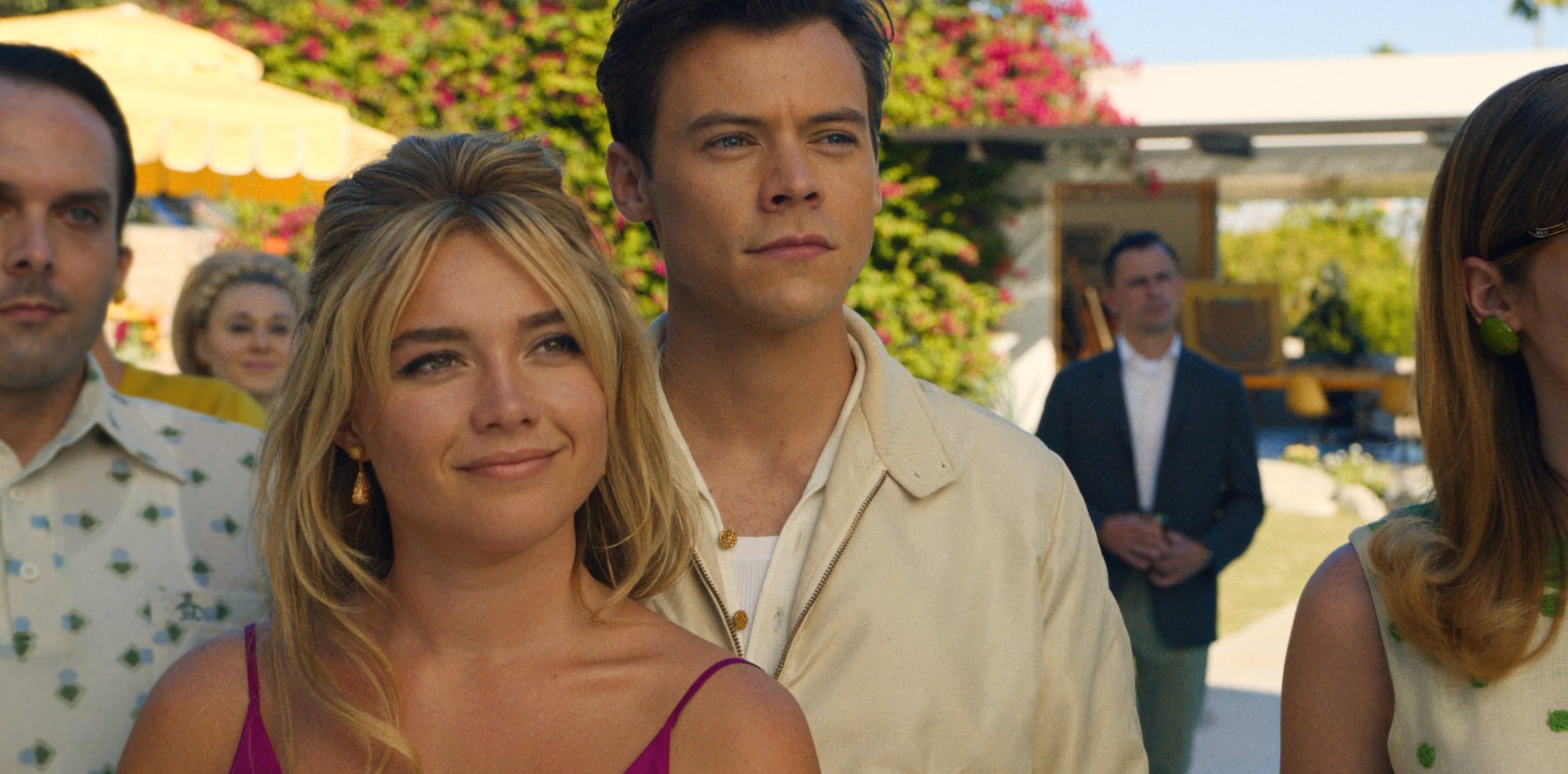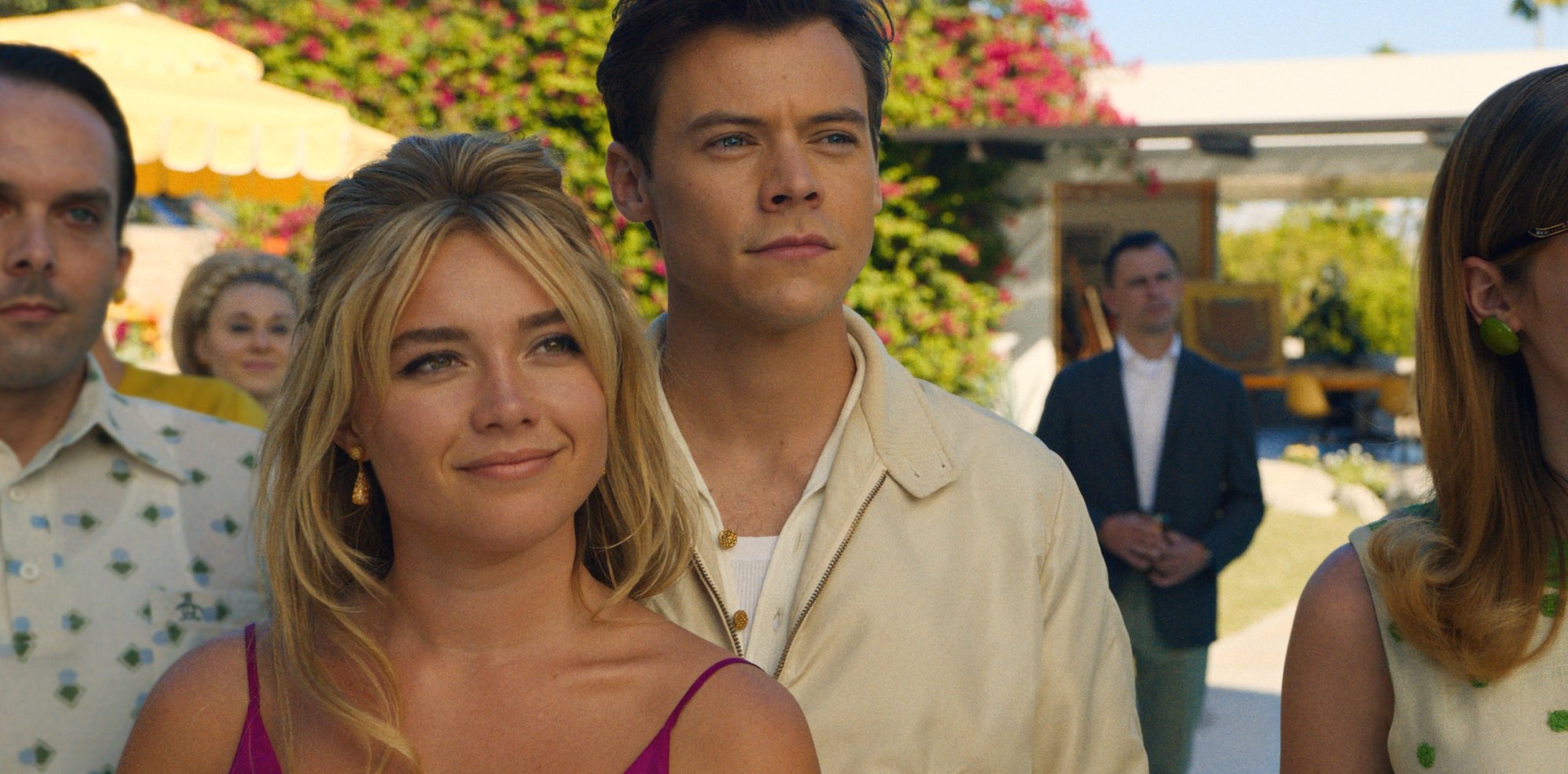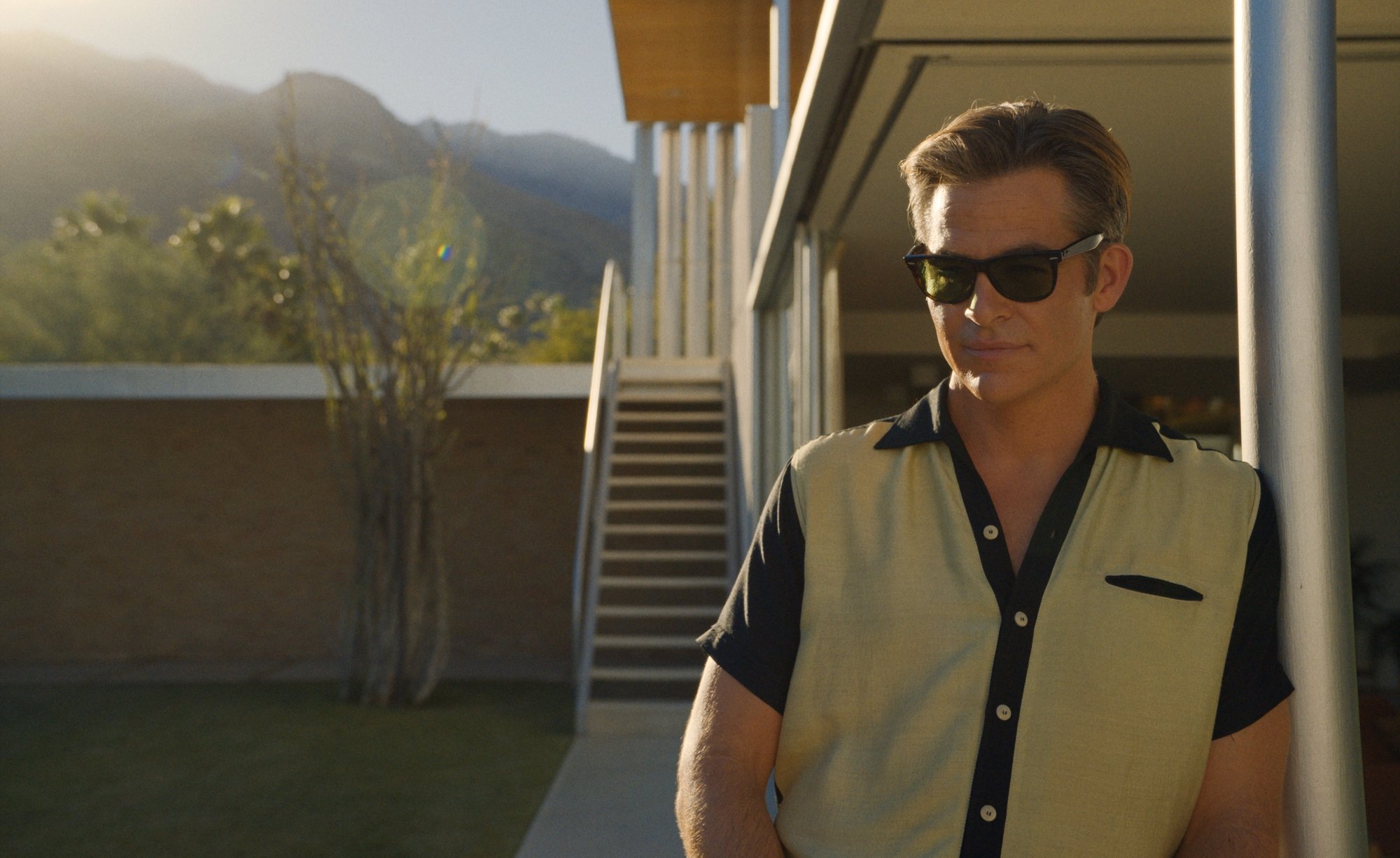
‘Don’t Worry Darling’ Movie Review: Florence Pugh Shines in Underwhelming Olivia Wilde-Directed Thriller
Don’t Worry Darling sparked social media conversation surrounding behind-the-scenes drama and an awkward press tour at the 2022 Venice Film Festival. However, it overshadowed the movie itself. Director and actor Olivia Wilde crafted a film that is visually arresting, but it’s a shame that the story isn’t able to totally encompass in the same way. Don’t Worry Darling could have been so much more.

‘Don’t Worry Darling’ shows the cracks in a utopian society

Alice Chambers (Florence Pugh) lives as a 1950s housewife to her passionate husband, Jack (Harry Styles). They live in a utopian experimental suburb community that is picturesque. Alice spends her days taking care of the home and sharing conversations over drinks with her closest friend, Bunny (Wilde). However, an old friend of theirs named Margaret (KiKi Layne) becomes an outcast when she suspects that something isn’t right in this utopian society.
The experimental suburbs in Don’t Worry Darling only have one rule for the housewives to follow: stay on route and don’t go to headquarters. Alice becomes increasingly suspicious of the Victory Project, where her husband is an employee, after believing she saw an aircraft crash in the desert. Alice becomes determined to get to the bottom of the truth, no matter the cost.
The power of knowledge and control is the name of the game
Don’t Worry Darling quickly establishes the status quo as Alice and Jack enjoy social time with their close friends and neighbors. Screenwriters Katie Silberman, Carey Van Dyke, and Shane Van Dyke’s script depicts a society where earthquakes are common and a natural part of the day. Alice and Jack share a passion-filled marriage, but when they aren’t working or making love, they’re meeting with their friends for drinks and good times.
This 1950s story comes with gendered work as they pursue progress shrouded in mystery. Men work to change the world via the Victory Project, while the women remain at home to cook, clean, and serve their husbands. It’s a seemingly well-oiled machine that relies on coordination and organization, much like the ballet classes that Alice attends with the other wives. There’s pressure to have a nuclear family, even though Alice and Jack’s passion for one another doesn’t leave the time or the desire for children. They find that there isn’t much room for deviation from their neighbors.
Don’t Worry Darling plays with the battle between order and chaos. Frank (Chris Pine) leads the Victory Project, which seeks out progress and requires every person to do their part. He holds all of the knowledge that he utilizes to exert his power over others. However, Alice becomes increasingly suspicious, putting a target on her back. As a result, a cat-and-mouse game follows that turns everything in her world upside down.
‘Don’t Worry Darling’ is a predictable thriller lacking suspense

Wilde broke onto the feature directing scene with the exquisite Booksmart that cleverly mixed comedy, wit, and warmth. She once again proves that she has a creative eye behind the camera and has something to say in Don’t Worry Darling surrounding power in gender. Wilde incorporates plenty of mirror tricks, some rooted in the narrative and others for symbolic reasons. Cinematographer Matthew Libatique’s gorgeous retro visuals pop off the screen, perfectly capturing a utopian 1950s society.
Audiences seeing Don’t Worry Darling for the names on the poster will be thoroughly satisfied with yet another stellar performance from Pugh. She doesn’t miss a beat, showcasing a range that far exceeds the source material. Meanwhile, Styles is a bit out of his league here. He isn’t bad, but he has difficulty standing out next to the powerhouse that is Pugh. Additionally, the pair have weak chemistry together.
There will be inevitable comparisons made to Jordan Peele’s Get Out, but there are also other titles that it pulls from. Wilde’s second feature film certainly feels like an amalgamation of better movies. It plays out under the assumption that the audience is remaining behind the veil of mystery, but it’s fairly obvious where it’s headed from quite early on. Additionally, all of the characters are a tad underbaked, always keeping the audience arms-distance away.
Wilde plays on the “hysterical woman” trope, but she has something interesting to say about it involving chaos, control, and the pursuit of happiness. There are good moments, but the story doesn’t come together. It’s properly paced and sufficiently entertaining with a powerful lead performance and stunning visuals. But, it’s also predictable, lacks suspense, and misses the mark in translating its most engaging ideas into its final act. Don’t Worry Darling has style in spades, but it’s a bit too light on the thrills.
Don’t Worry Darling releases in theaters on Sept. 23.


